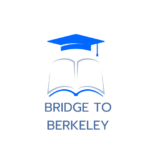College Interview Tips

Preparing for college interviews can be a nerve-wracking experience for many students. It’s a crucial opportunity to make a positive impression and showcase your personality, achievements, and aspirations. With the right approach, you can confidently navigate the interview process and increase your chances of standing out among other applicants.
In this article, you’ll discover valuable tips and strategies to help you ace your college interviews. From researching the institution and practicing common interview questions to dressing appropriately and expressing your genuine enthusiasm, these insights will empower you to present yourself in the best possible light. By following these expert tips, you’ll be well-equipped to tackle your college interviews with confidence and leave a lasting impact on the admissions committee.
Understanding the College Interview Process
Navigating the college interview process is a crucial step in showcasing one’s readiness for higher education. Students should familiarize themselves with the typical structure and expectations of these interviews to present themselves in the best possible light. The following insights shed light on the key aspects of the college interview process:

- Researching the Institution:
Conducting thorough research about the college or university where the interview will take place is vital. Knowing the institution’s values, programs, and campus culture can help students tailor their responses and demonstrate a genuine interest in becoming a part of the academic community. - Understanding Common Questions:
Familiarizing oneself with common interview questions can boost confidence and preparedness. By practicing responses to queries about their academic interests, extracurricular activities, and future goals, students can articulate their thoughts clearly and succinctly during the interview. - Presenting a Professional Image:
Dressing appropriately for the interview is essential in creating a positive first impression. Choosing attire that is neat, professional, and reflects the seriousness of the occasion can convey respect for the interview process and the institution. - Expressing Enthusiasm and Authenticity:
Demonstrating genuine enthusiasm for the college and sincerity in responses can leave a lasting impact on the interviewers. Sharing personal anecdotes, experiences, and aspirations can help convey a student’s unique qualities and fit for the institution.
By understanding these fundamental aspects of the college interview process, students can approach their interviews with confidence and showcase their best selves to the admissions committee.
Essential Tips for a Successful College Interview
Dressing for Success
Ensure that attire for the college interview is professional and appropriate for the occasion. Opt for business casual attire, such as a button-down shirt or blouse with slacks or a skirt. Avoid overly casual clothing like jeans and sneakers to make a polished first impression.
Common Mistakes to Avoid During a College Interview
In the high-stakes environment of a college interview, avoiding common mistakes is crucial for leaving a positive impression on the admissions committee. Here are the typical pitfalls that candidates should steer clear of to maximize their chances of success:

- Lack of Preparation: Not preparing adequately for the interview can significantly diminish a candidate’s performance. It’s essential to research the college, understand its values, programs, and unique aspects, and anticipate potential questions.
- Unprofessional Attire: Inappropriate clothing choices can detract from a candidate’s credibility. Avoiding overly casual outfits like jeans, sneakers, or revealing attire is essential. Opt for business casual attire to convey professionalism and respect for the occasion.
- Failing to Showcase Enthusiasm: A lackluster demeanor can convey disinterest to the interviewer. It’s crucial to express genuine enthusiasm for the college and the opportunity to study there. Enthusiasm can leave a lasting positive impression.
- Inadequate Communication Skills: Poor communication, whether due to lack of clarity, confidence, or coherence, can hinder a candidate’s ability to effectively convey their strengths and experiences. Practicing responses to common questions and refining communication skills is vital.
- Lack of Authenticity: Being inauthentic or insincere during the interview can be easily perceived and affect the candidate’s credibility. It’s important to be genuine, share personal stories, and highlight unique qualities that make the candidate a good fit for the institution.
- Not Asking Questions: Failing to ask thoughtful questions at the end of the interview can signal disinterest or lack of engagement. Candidates should prepare insightful questions about the college or specific programs to demonstrate their interest and engagement.

